Are you looking for a comprehensive and engaging way to communicate important information about reproductive health education? Understanding the nuances of reproductive health can empower individuals to make informed decisions that positively impact their lives. Whether you're a teacher, healthcare provider, or community leader, sharing this knowledge is crucial for fostering a healthy and informed society. Dive into our article to discover effective strategies and resources for delivering impactful reproductive health education!
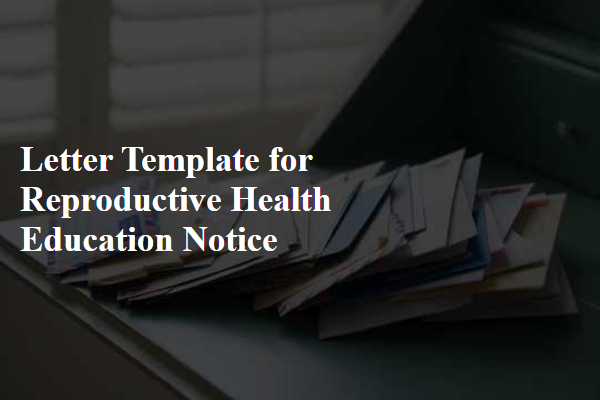
Clear purpose statement
Reproductive health education programs aim to provide essential information and resources regarding sexual health, contraception, and family planning. Target audiences include adolescents, young adults, and parents, ensuring that they understand the importance of informed choices. These programs discuss various topics, including sexually transmitted infections (STIs), reproductive rights, and access to healthcare services, fostering a supportive environment for open dialogue. Educational materials often incorporate statistics on teen pregnancy rates and STI prevalence. Workshops and seminars may feature guest speakers, including healthcare professionals and community leaders, emphasizing the availability of local health services and resources for further support.
Audience identification
Reproductive health education notices play a crucial role in informing target audiences about essential health information. Adolescents aged 12-19 years, parents, educators in schools, and community health workers require access to reliable knowledge. Both male and female individuals benefit from comprehensive understanding, especially regarding puberty, safe practices, and prevention of sexually transmitted infections (STIs). Additionally, marginalized groups, including LGBTQ+ youth and individuals with disabilities, must be included to ensure equitable access to reproductive health resources. Local community centers or schools can serve as vital platforms for disseminating this information effectively. The inclusion of culturally sensitive materials can enhance engagement and understanding.
Comprehensive content outline
Reproductive health education serves as a crucial aspect of public health, focusing on the well-being of individuals in relation to their reproductive systems throughout their lifespan. Effective programs encompass crucial topics such as reproductive anatomy and physiology, including male and female reproductive organs like ovaries, testes, and their functions. Key areas include contraception methods, highlighting various options such as hormonal pills, IUDs, and condoms, emphasizing their effectiveness rates and potential side effects. Sexually transmitted infections (STIs) remain a vital subject, detailing prevention strategies, symptoms, and treatment options for infections like chlamydia, gonorrhea, and HIV/AIDS, also addressing the stigma often connected to these conditions. Additionally, discussions on pregnancy health are essential, covering prenatal care, labor, delivery, and postpartum recovery, with statistics indicating that 20% of pregnancies may experience complications. Mental health impacts surrounding reproductive issues, including stress and anxiety related to infertility or reproductive loss, require attention. Moreover, inclusive education on sexual orientation, gender identity, and respectful relationships fosters a supportive environment for all individuals. Educational resources, sessions, and workshops facilitate open dialogue and informed decision-making, contributing to a well-rounded understanding of reproductive health.
Call to action
Reproductive health education programs are essential for fostering informed communities. Awareness initiatives will take place in various locations such as community centers, schools, and healthcare facilities throughout the city. Participants will learn about crucial topics including contraception, sexually transmitted infections (STIs), and consent. Events scheduled from January 10 to March 15, 2024, will feature expert speakers and interactive workshops aimed at empowering individuals with knowledge. Educational materials will be distributed to enhance understanding. Community involvement is critical, and attendees are encouraged to invite friends and family. This initiative serves to promote healthy choices, decrease stigma, and improve overall community well-being.
Contact information
Reproductive health education is vital for adolescents navigating complex changes during puberty. Educational programs often take place in community centers, schools, or healthcare facilities, providing personal insights and scientific knowledge about topics such as contraception, sexually transmitted infections (STIs), and emotional health. Experienced educators emphasize the importance of consent, healthy relationships, and sexual safety in discussions. Resources include pamphlets, interactive workshops, and access to healthcare professionals. Furthermore, organizations like Planned Parenthood offer confidential consultation services, ensuring that youth receive accurate information tailored to their needs. Local helplines and online resources further support individuals seeking assistance on reproductive issues.
Letter Template For Reproductive Health Education Notice Samples
Letter template of reproductive health educational resources distribution
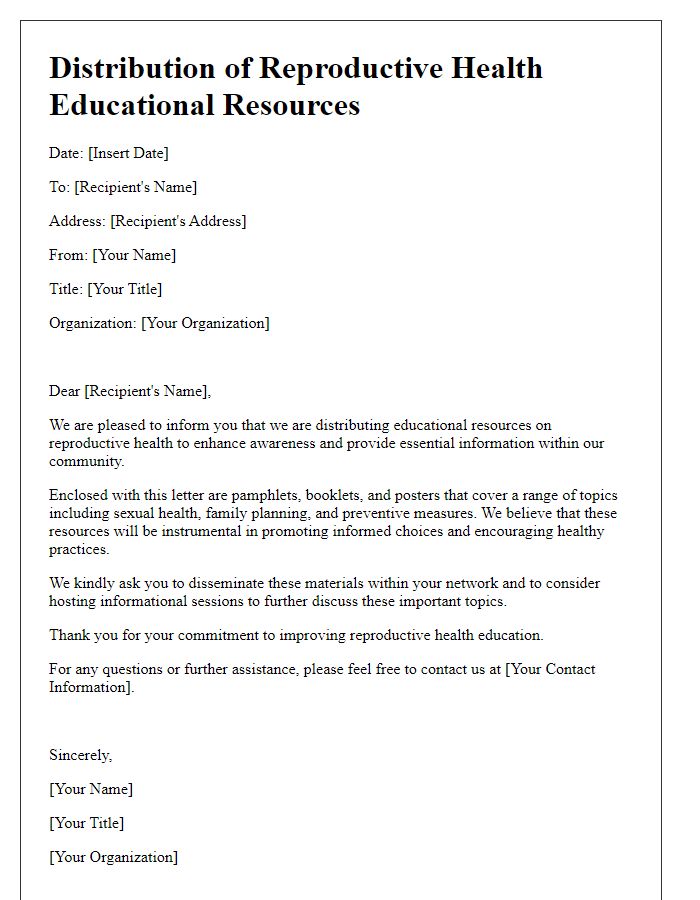

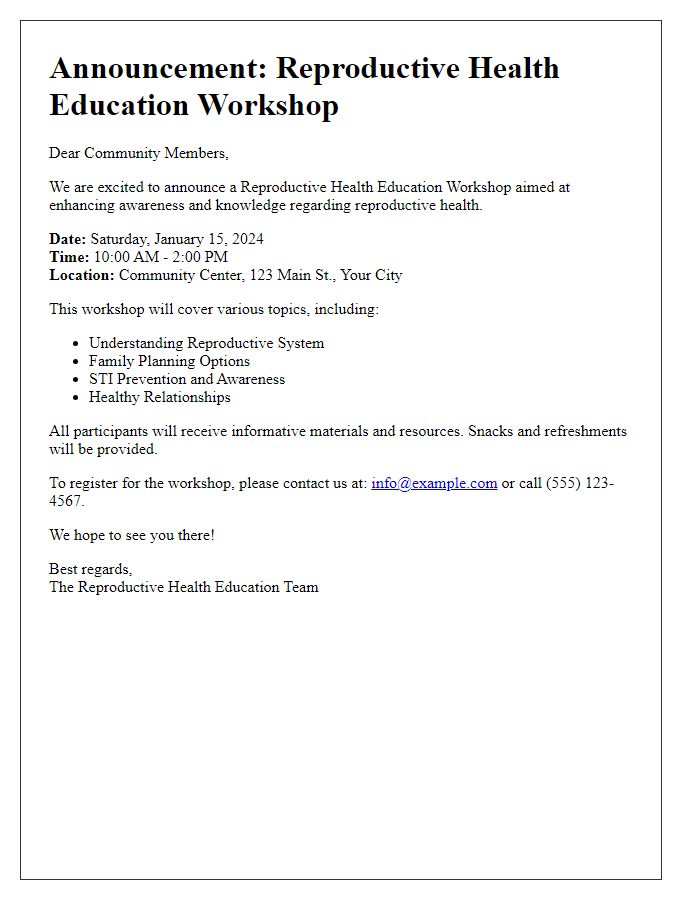
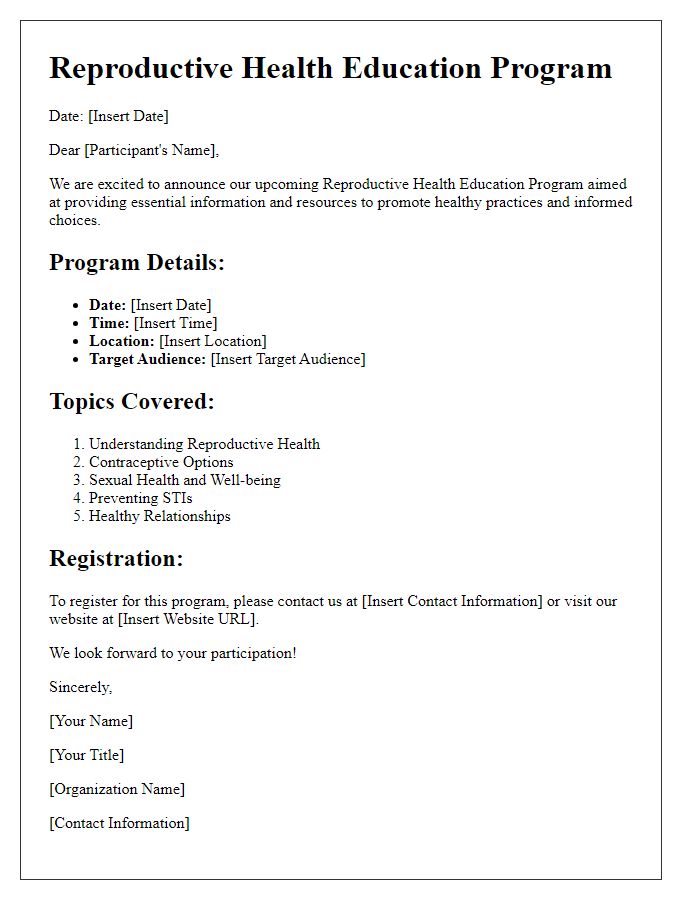
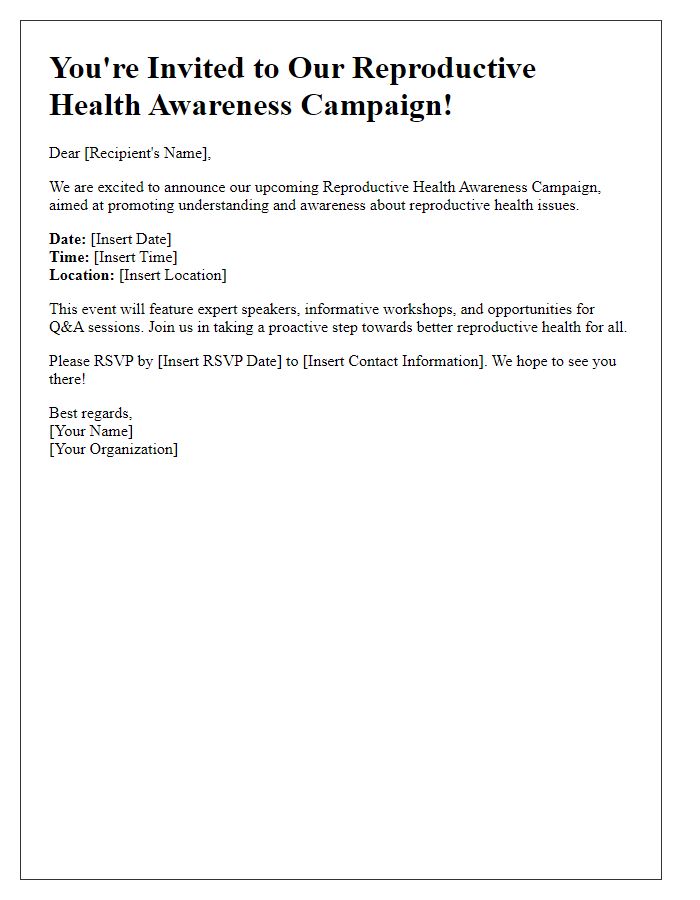
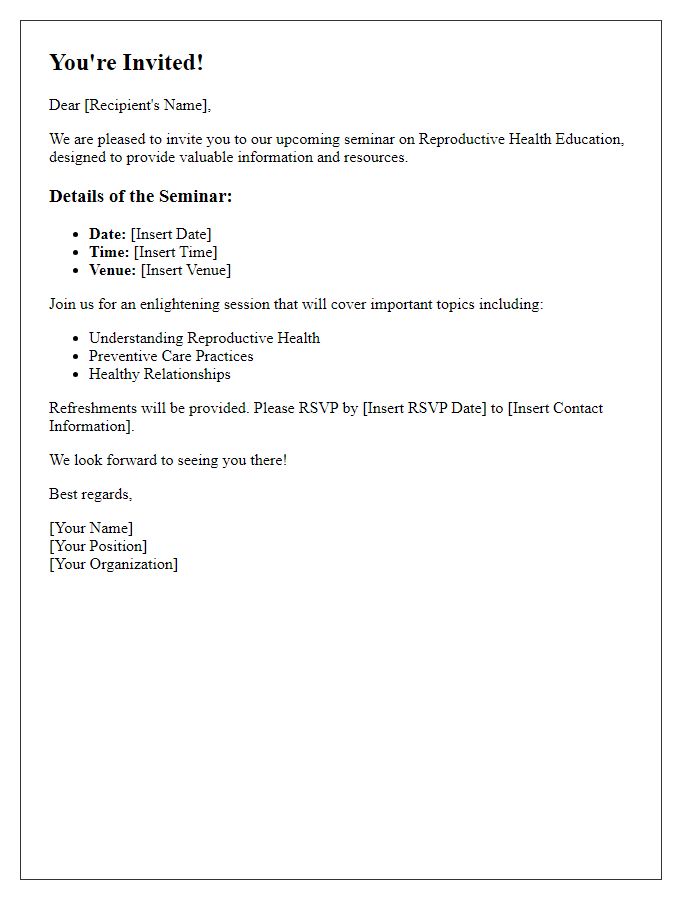
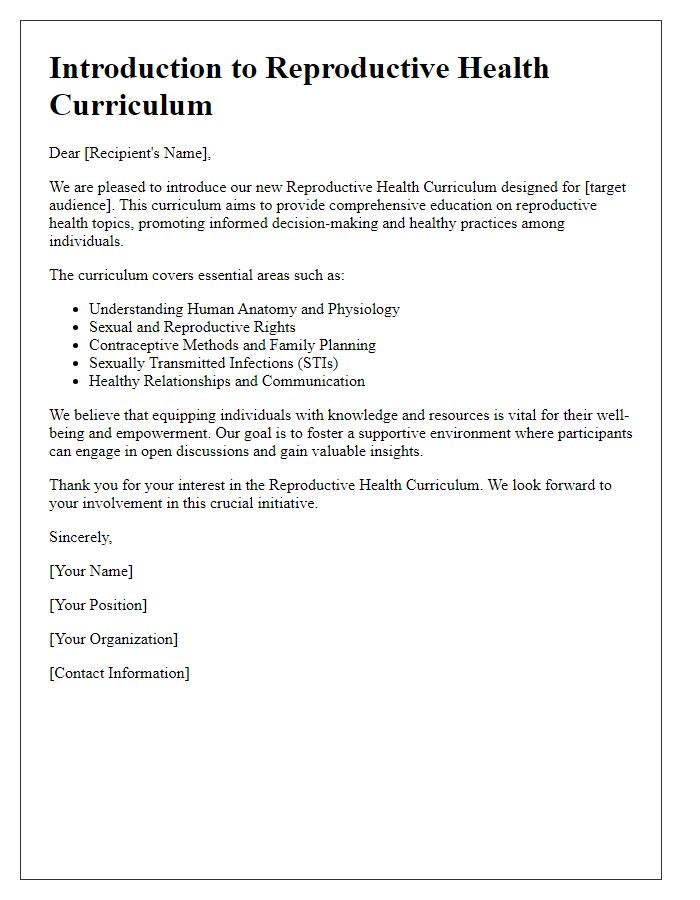
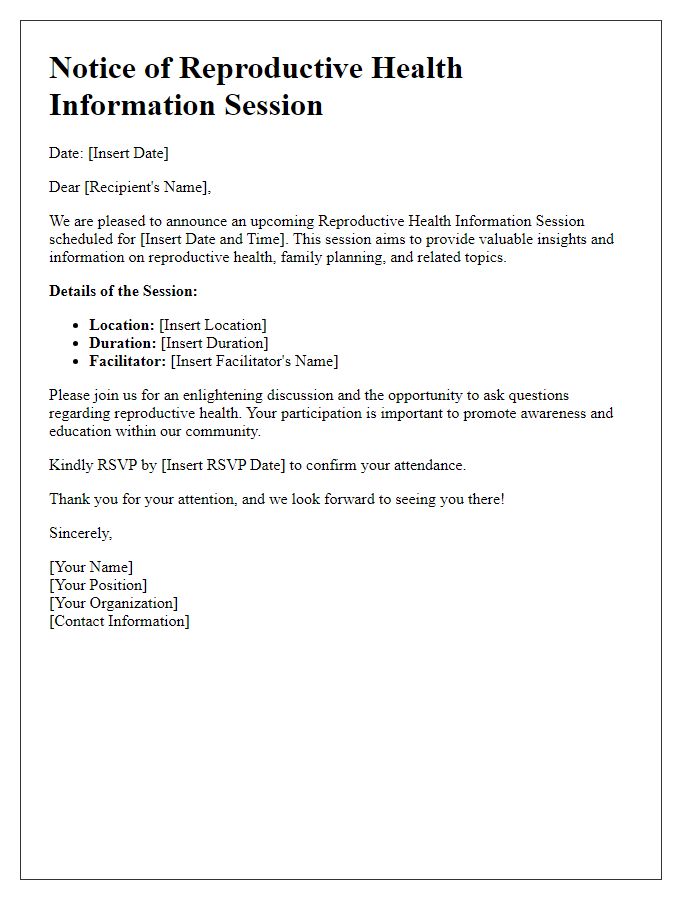
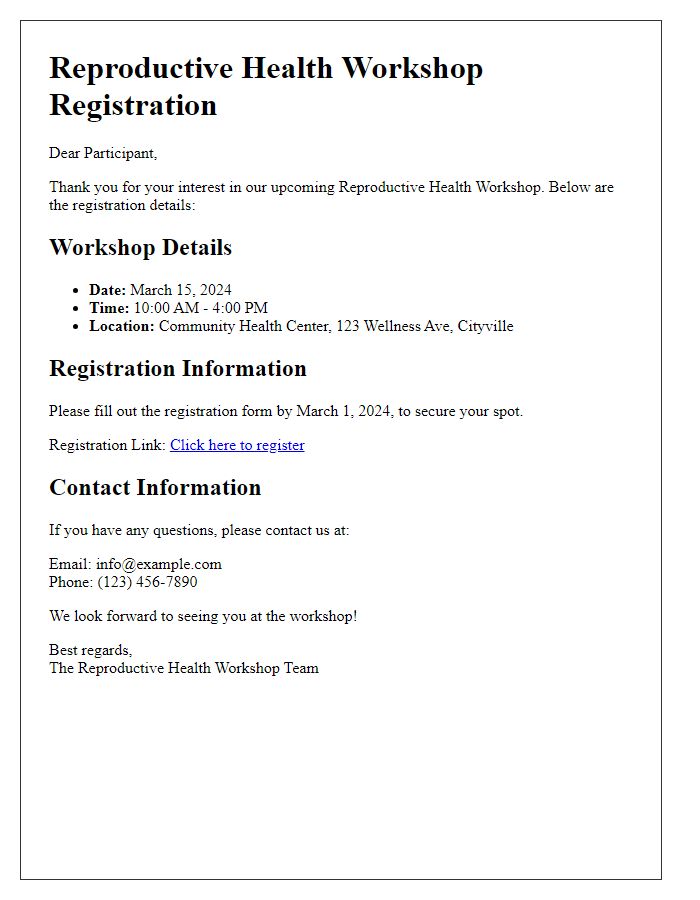
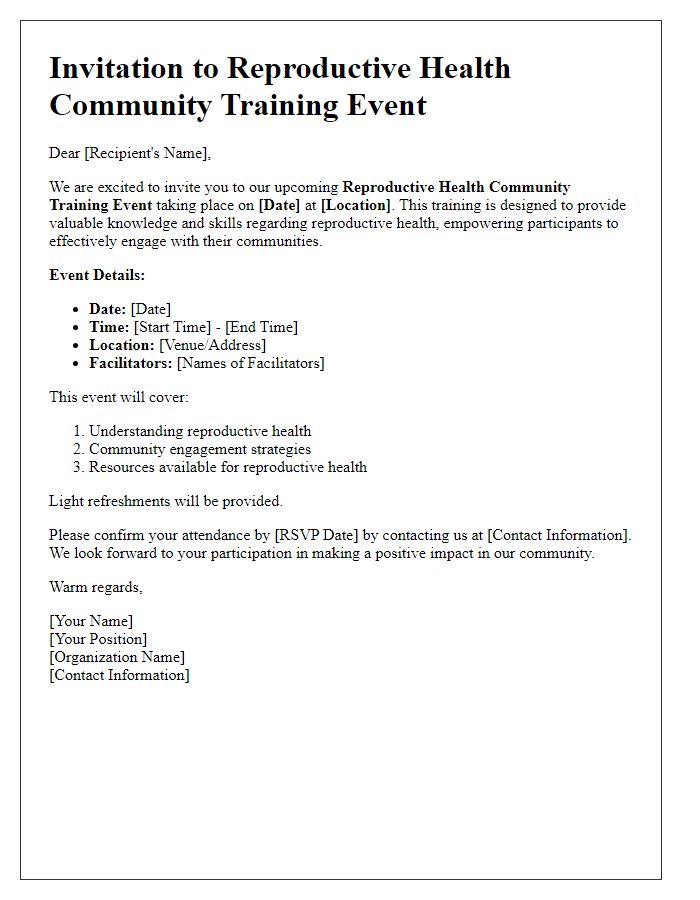
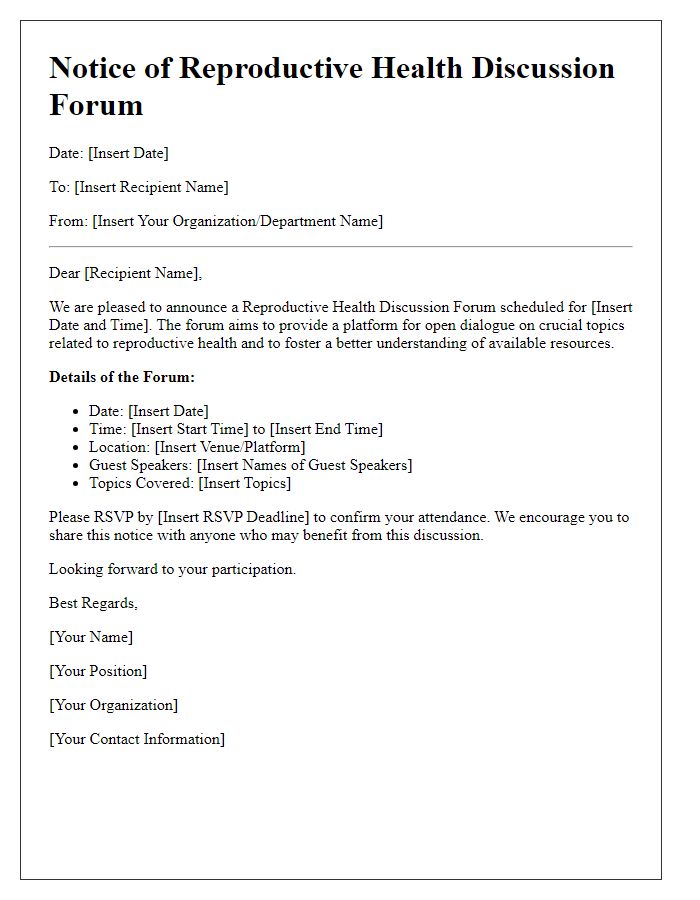

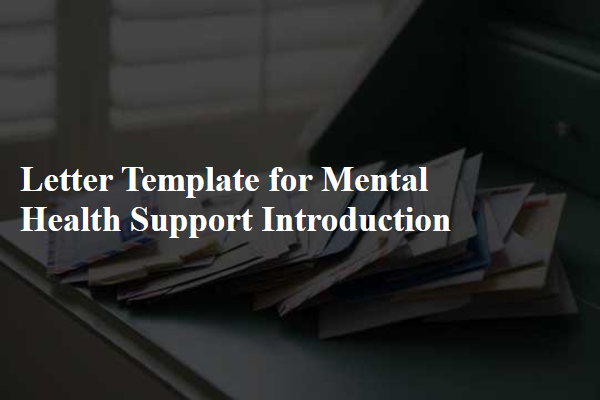
Comments